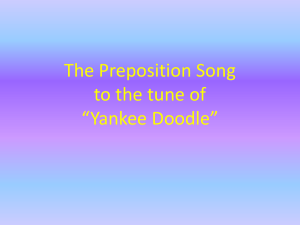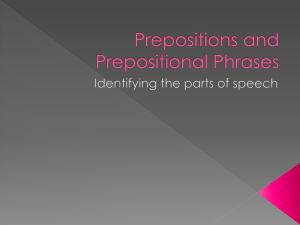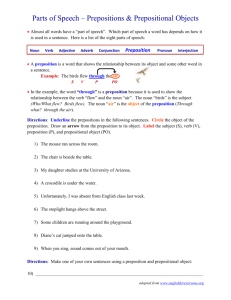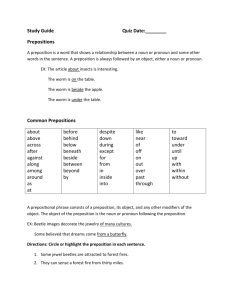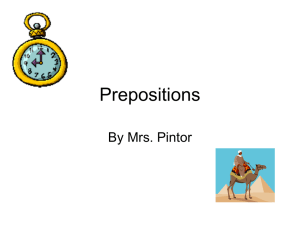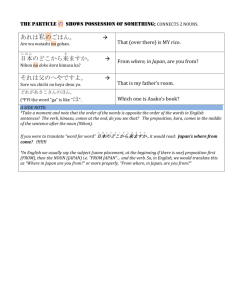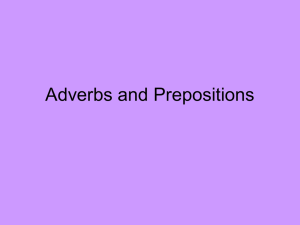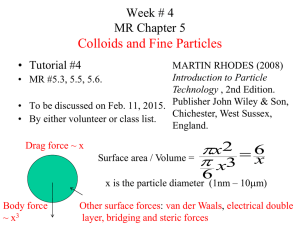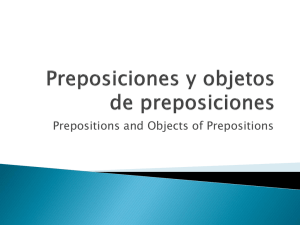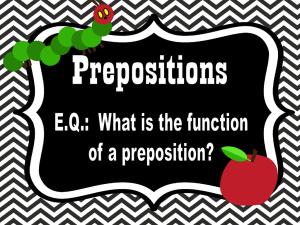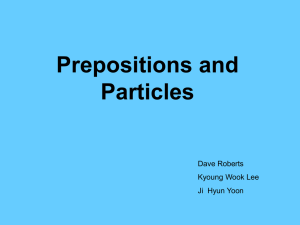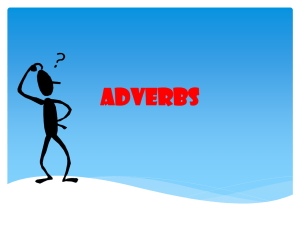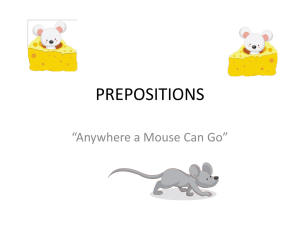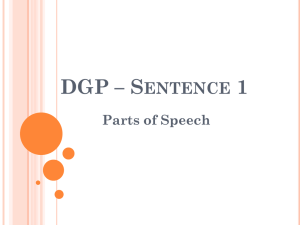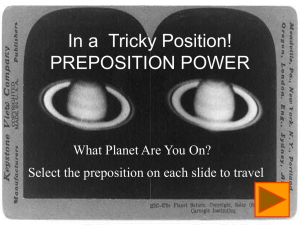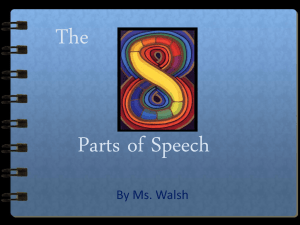Particles - Gordon State College
advertisement
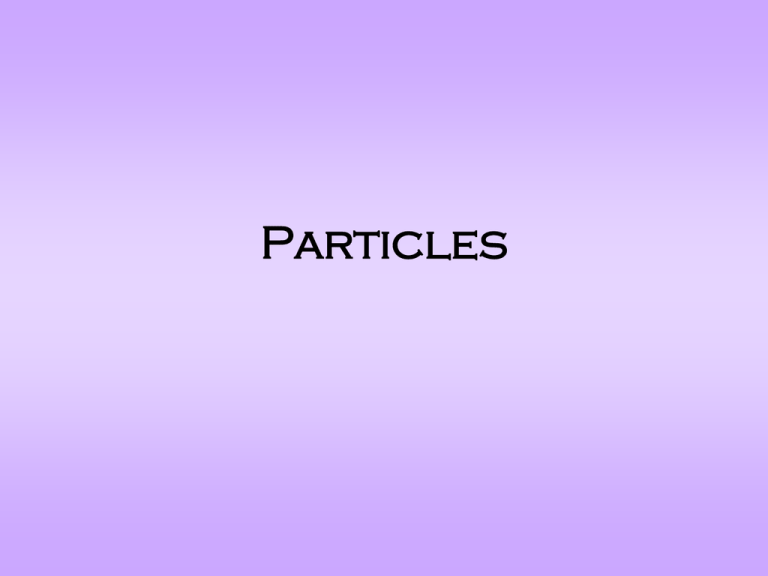
Particles You may come across other definitions for the term “particle” related to parts of speech. But generally, it refers to adverbs that look suspiciously like prepositions. They made up yesterday. Please sit down. We should drive around for a while. These are adverbs, not prepositions. You can’t put a noun/pronoun after them without changing the meaning. Actually, some grammarians wouldn’t even call “up” in the sentence above an adverb, just a particle. Like the “to” that precedes an infinitive, it’s really just part of the verb in meaning. You can even think of a synonym for the phrase “made up,” right? They reconciled. If you think about it, particles like “up” in the previous example have absolutely nothing to do with the real meaning of the word. Is there any “up” in the idea of reconciling? Likewise, think of the “up” in “wind up.” Does “wind up” actually have “up” in its meaning? Does “wind up” mean begin or end? I’m going to wind up the toy. I’m going to wind up the meeting. The first means to start; the second means to end. “Up” has nothing to do with “to start” or “to end.” Have you ever heard anyone try to be funny by being hypercorrect and saying, “There are some things up with which I will not put”? The natural way of saying that is “There are some things (which) I will not put up with,” but ideally, we don’t want to end a sentence with a preposition. “With” is a preposition; “up” is a particle. The correct way to say the sentence is “There are some things with which I will not put up.” That still sounds stilted, because if we’re going to be formal enough to avoid ending a sentence with a preposition, we’re going to say “tolerate” rather than “put up with.” Note that “up” has nothing to do with “tolerate.” Back to practicalities: how do you know if a word is a particle or a preposition? If there’s no noun around, as there wasn’t in the first set of examples, there’s no problem. But sometimes there IS a noun: I wrote down the words. I walked down the road. In the above sentences, “down” is a preposition in one & a particle in the other. Can you tell which is which? Really look & think before clicking for the answer. If it’s a particle, you can move it, & the sentence will make sense. If it’s a preposition, the sentence won’t make sense if you move it: I wrote down the words. – I wrote the words down. I walked down the road. -- *I walked the road down.* So in the first sentence, “down” is a particle, & in the second, “down” is a preposition. To sum up, words that are frequently prepositions can also function as adverbs, and when they follow the verb, we call them particles. Click here to go to a practice exercise.
